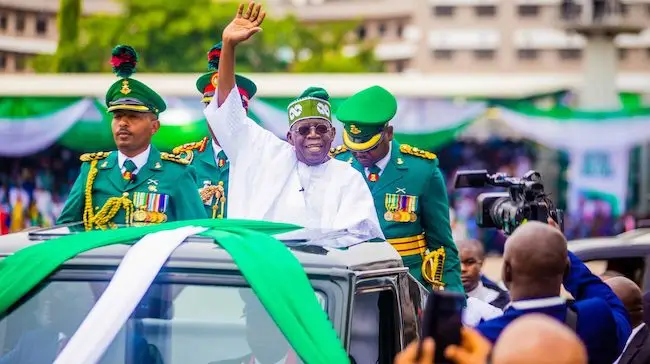When retired military officers join politics, they hardly distinguish between the enemy on the battlefield and the political enemy. Whereas the soldier is trained to kill, not even maim his enemies (enemies of the state that commissioned him), the political field is a different plain. We agree to disagree and disagree to agree. Those are the hallmarks of politics and its trade. I think the purest form of politics is played in the universities, especially during the contest for the Students’ Union presidency. In those days, we could go straight into the camps of our opponents and tell it straight to their faces: una go lose and nothing would happen. The politician believes and lives the mantra; no permanent enemy and no permanent friend but permanent interest. For the soldier-turned-politician, however, the practice of politics does not imbibe the famous quote from General Carl Philipp Clausewitz: “War is the continuation of policy with other means.” The retired soldier in politics is like a man fighting a battle with opponents. It is like a war of attrition, where the enemy must either die or be buried or left dead to be eaten by vultures in the plain field.
Two retired military generals who have taken their turns in the Nigerian Presidency have exhibited traits of the typical soldier in politics as stated above. Obasanjo’s politics as President was such that he must conquer his political enemy, using military strategies disguised as political/ diplomatic styles. When in the build-up to the 2003 election, Obasanjo saw the Afenifere/Alliance for Democracy(AD) as a possible obstacle to his re-election plans, he chose to make friends with the organisation. He went cap in hand to see the leaders of Afenifere, the organisation that produced all the six South West governors in the election of 1999 through the AD. Meetings, after meetings, in the wee hours of several days, in the Apapa, home of the late Pa Abraham Adesanya produced an agreement in the mould of the Omo eni ko ni se idi bebere, ki a fi ileke si idi omo elomiran parlance that resurfaced in the 2023 election. Afenifere agreed to help Obasanjo win his election in the zone, while a rub my back, I rub your back pact was believed to have been struck. But like the military man that he was, made him to only use the pact to defeat the AD in its stronghold. He succeeded in uprooting five of the six AD governors.
When mischief-makers hinted Obasanjo that his friend, whom he had supported to emerge as Senate President in 2003, Adolphus Wabara might be nursing presidential ambition ahead of 2007, he unleashed the military strategy of war without end to get the man to resign from office in 2005 in the wake of a concocted bribe for budget scandal, that was designed to prepare the stage for the third term agenda that followed later.
The typical thinking of a military man in politics also pervaded the horizon of the immediate past President, General Muhammadu Buhari. When he joined politics around 2001, he was the Talakawa’s man, who spoke from the heart as an obstinate Puritan, who abhors corruption, economic sabotage, and insurgency. Though his eight years of rule as Nigerian president have showcased a man who wore those badges or lapels as mere facades of political branding. His era has brought upon the nation some of the worst examples of corruption, insurgency, and economic sabotage.
One thing, however, remained constant with Buhari, he did not pretend to love his enemies, unlike the everyday politician. When he saw the then Senate President, Bukola Saraki as his political enemy, he treated him with utmost disdain, even when the latter had emerged as the President of the Senate and the number three man in his government. And even with the information at his disposal that Saraki did a yeoman’s job in getting him to win the 2015 election. He didn’t want to touch Saraki with the longest of poles. You could see that his letters to the Senate when he was compelled to do so as a matter of duty, were written half-heartedly.
Obasanjo and Buhari, as men with military backgrounds took down their enemies in a war without end fashion. And in doing that the two took a common decision to deny Senators Adolphus Wabara and Bukola Saraki the honour of wearing the second highest honour in the land, the GCON title. The title has been conventionally set aside for the nation’s number two citizen as well as those who occupy the seat of senate president and any other that may be deemed fit by the President and Commander-in-Chief. I believe that incumbent President Bola Ahmed Tinubu needs to reverse the decision against Wabara and Saraki in difference to the no permanent enemy and no permanent friend saying. Unlike the duo, other Senate Presidents of the Fourth Republic have been conventionally conferred with the GCON honour. Senator Anyim Pius Anyim, who preceded Wabara in the office is a holder of the title, the same as Senator Ken Nnamani, who took over from the Abia-born Senator in 2005. Two-time President of the Senate, David Mark, wears the national title, like the man who succeeded Saraki, Dr. Ahmed Lawan.
While Obasanjo denied Wabara that honour on account of his forced resignation from office in 2005, Buhari denied Saraki the privilege, simply because he did not like his face. Incidentally, Wabara and Saraki had gone through the judicial mills to cleanse themselves of any stain of corruption allegations. While Wabara resigned from office to be able to clean his name off the allegations coiled around the bribe-for-budget scandal of 2005 and eventually secured a clean bill of health from the courts, Saraki was dragged before the Code of Conduct Tribunal over sundry allegations and ended of securing a not guilty verdict of the apex court.
With Wabara’s case going up and down the judicial ladder, he finally secured victory in 2019 during the administration of President Muhammadu Buhari. But Buhari, who had earlier denied Saraki, who presided over the 8th Senate (2015-2019) the same honour, would not blink an eye in the case of Wabara, who happens to be a leading figure in the opposition, Peoples Democratic Party (PDP).
But our politics should be devoid of the do-or-die agenda. Wabara, 76, is the current Chairman of the Board of Trustees of the PDP, while Saraki, a former chieftain of the ruling All Progressives Congress(APC), had served as governor in his home state of Kwara. I do not think that President Tinubu would hurt his politics by conferring the duo with the GCON national honour.



